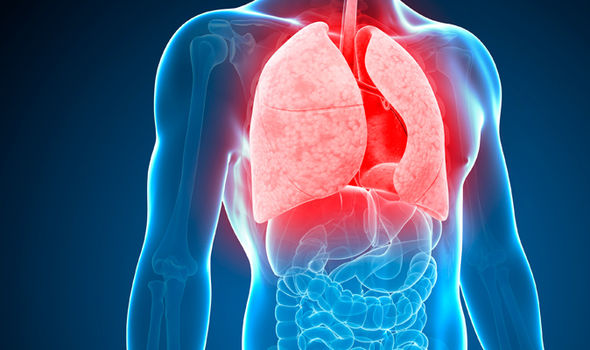Nigeria is ranked the highest in tuberculosis burden in Africa and high among 22 countries with severe cases of tuberculosis worldwide, Nigeria Thoracic Society (NTS) stated in a report.
The statistics also showed that a third of the world’s population is infected with Mycobacterium tuberculosis and there is a new infection every second.
This was contained in a release issued yesterday in Uyo by Professor Etete Peters, the President of the Nigerian Thoracic Society to mark this year’s World Tuberculosis day on the theme, “Wanted: Leaders for a TB-Free World.’’
Peters said TB remains the world’s leading infectious killer, being responsible for the deaths of nearly 1.7 million people each year and representing the ninth leading cause of death globally.
‘’The day is an occasion to mobilise political and social commitment for further progress towards eliminating TB as a public health burden.’’
The theme of World TB Day 2018 – “Wanted: Leaders for a TB-free world”- according to him, focuses on building commitment to end TB, not only at the political level with heads of state and ministers of Health, but at all levels from mayors, governors, parliamentarians and community leaders, to people affected with TB, civil society advocates, health workers, doctors or nurses, NGOs and other partners.
Professor Peters, who was the immediate past Chief Medical Director (CMD) of University of Uyo Teaching Hospital (UUTH), said TB affects the economically productive age group in the community, thereby affecting productivity.
More worrisome, according to him, is the fact that about one in three people with TB are never diagnosed and in Nigeria, the proportion of missed cases is as high as 50 per cent. This means they will not be treated and they will continue to transmit the disease in the community.
He said the focus of this year’s war against TB, comes in line with the Sustainable Development Goals set by the End TB Strategy and the Global Plan to End TB, 2016-2020, aiming to eliminate TB by 2035.
Another report has it that Nigeria is ranked amongst the 14 countries with high rate of Tuberculosis, Human Immune Virus, HIV/AIDs and Multidrugs Resistant Tuberculosis, MDR-TB in the world, according to Global TB report.
The country is also ranked 7th among the 30 high TB burden countries and 2nd in Africa.
Professor Isaac Adewole, Minister of Health, who stated this on Friday while commemorating the 2018 World TB Day in Abuja also said that Nigeria also falls among the 10 countries that account for 64 percent of the global gap in TB case finding.
According to Adewole, the TB burden was further compounded by the menace of drug resistance TB (DR-TB) and the HIV/AIDS pandemic. ” In 2017, the country notified only 109,904 out of the estimated 407,000 all forms of TB cases (with treatment coverage of 25.8 per cent), leaving a gap of 302,096 comprising undetected or detected but not notified cases especially in non-DOTS sites.
“In the same year, the proportion of Childhood TB was 7% of all forms of TB cases compared to 10 per cent recommended by the World Health Organization (WHO). In addition, a total of 1783 DR-TB cases were notified out of the estimated 5200 DR-TB cases of TB, TB/HIV and MDR-TB in countries- India, Indonesia and Nigeria account for almost half of the total gap,” Adewole stated.
The Minister further said that the ministry in its response to the TB burden has developed a robust National Strategic plan for (2015 – 2020) as well as a framework to support the declaration of 2017 as a year of accelerating TB case finding and treatment in Nigeria.
“The implementation of the NSP for TB (2015 – 2020) though not without its limitations has brought noticeable improvements in TB control activities.
“To accelerate TB case finding, the country has now moved from passive to active case-finding in key affected populations, including PLHIV, children, urban slum dwellers, prisoners, migrants, internally displaced people and facility-based health care workers, to target those most at risk for TB.
While stressing that over 11,500 cases of TB were detected through active house to house case search in 2017, Adewole added that Nigeria currently has 6,753 DOTS centres compared to 3931 in 2010.
He said that the total number of microscopy centres has risen from 1,148 in 2010 to 2,650 in 2017. “GeneXpert machines installed in the country have increased from 32 in 2012 to 390 in 2017.
“Treatment centres for patients with DR-TB have expanded from 10 in 2013 to 27 in 2017. The number of TB reference laboratories has also increased from 9 in 2013 to 10 in 2018. Over 90 per cent of the TB patients notified in 2016 have documented HIV test results compared to 79% in 2010. (The Leadership)

